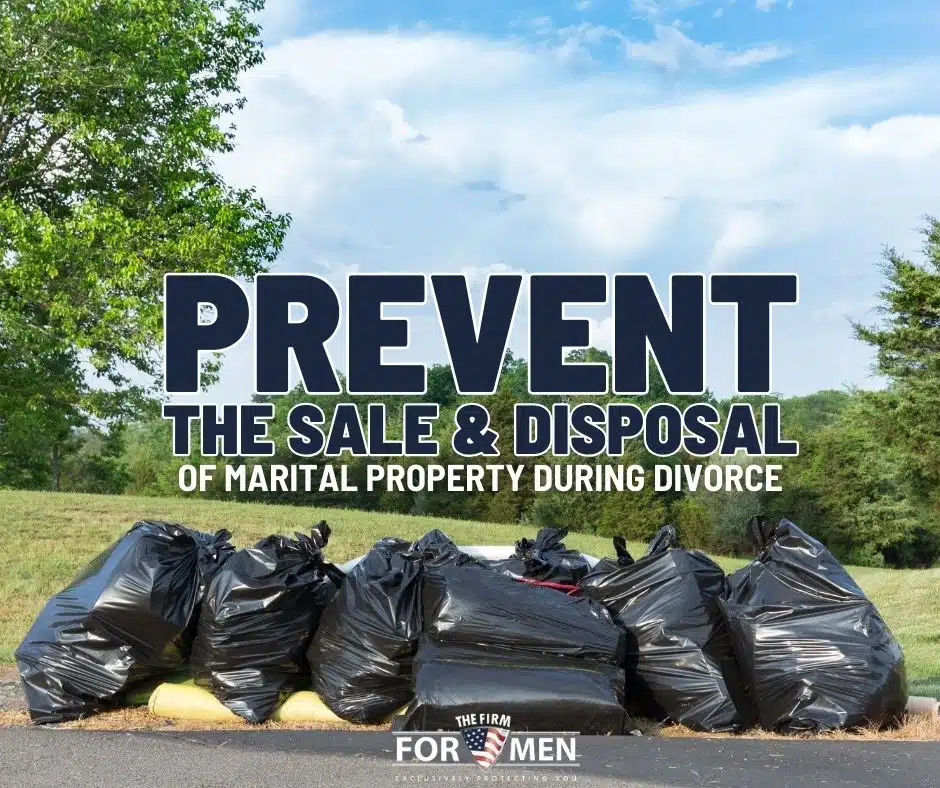Queen Victoria was only 4 feet 11 inches tall, but she had a 60-inch waistline. Her marital waist was a mere 20 inches when she married her cousin Albert. Over the next 61 years, bless her, her Royal Highness’s marital waist became a … a Royal Wideness, as evidenced by her bloomers. Don’t be judgy! What has happened to your waistline during your marriage? Anway, when dealing with a Virginia divorce, a marital waist should not be confused with marital waste.
Jump to a Section
Selling Marital Property
Many Virginia divorces are amicable, with no friction between the spouses. These uncontested divorces are almost always the least expensive, fastest, easiest ways to sever the bonds of matrimony.
Unfortunately, plenty of other Virginia marriages seethe with anger, resentment, fear, and retribution. A common revenge to a wounded heart is to sell off marital assets during the long months pending the final divorce decree.
This is called “marital waste,” and — though sometimes hard to prove — is illegal.
Property in a Virginia marriage breaks down along three lines under Code of Virginia § 20-107.3:
- Separate property — generally, anything you brought to the marriage, that you inherited or paid for on your own
- Marital property — generally, assets the two of you acquired during the marriage for the good of the marriage and family
- Hybrid or commingled property — This is usually described as using separate assets to acquire marital assets; if the origin and impact of the separate assets can be detected, the separate assets are “unwound” back to the owner
If you and your spouse agree in writing about your separate assets, you can do whatever you want with your own personal property. In a Virginia divorce, however, neither you nor your spouse has a legal right to sell off, donate, or throw away marital property.
Marital Waste
We need to look at case law, not Virginia Code, to understand how Virginia’s courts treat marital waste. In 1988, the Virginia Court of Appeals defined it in Booth v. Booth, stating:
“Waste” is the dissipation of marital funds in anticipation of divorce or separation for a purpose unrelated to the marriage and in derogation of the marital relationship at a time when the marriage is in jeopardy.
Deliberately squandering marital assets can elicit a fraud charge. Suppose your spouse opens a separate, sole owner bank account and slowly transfers money from your joint, marital bank account. That means your spouse is trying to hide assets. Oh, your spouse may not do it in so obvious a way as stuffing things like a chainsaw down her bloomers. (Though, if your divorcing spouse suddenly seems to share Queen Victoria’s waistline, that’s worth checking into.)
Your spouse might also achieve the same effect by selling off marital assets (cars, vacation homes, jewelry, fine art, or what have you). Hiding, squandering, or selling assets — it is all fraud.
Paying Marital Expenses
Divorce in Virginia is not instantaneous. Over the months between separation and that final divorce decree, your married life still has expenses. Car payments, real estate taxes, school fees, insurance, mortgage payments; they all must be paid from marital financial assets.
Distinguishing fraud from legitimate marital expenses can be tricky. This is why both of you need to keep complete, accurate records. It is also why those records are usually offered to both parties in discovery. Both sides in the divorce need to be able to investigate all the accounts to ensure no marital waste occurs.
Having an attorney to oversee the separation and divorce adds a layer of protection to you and to the financial accounts. Your attorney can arrange for a private investigator to examine financial records, to detect marital waste.
Freezing Marital Funds
While you can act after the fact and pursue fraud charges against your spouse for marital waste, a better strategy — and one a good Virginia divorce attorney will suggest — is to prevent plundering of marital assets.
If you suspect your spouse wants revenge and may try to spend down marital savings, you can have your attorney file a motion for an injunction (a freeze) on marital accounts. That keeps your hands and your spouse’s hands off the accounts. The same injunction can prevent selling or giving away personal or real property.
In Virginia, the injunction to freeze accounts and possessions is the only path to preventing marital waste while the divorce is pending.
You may think an easier solution would be to disentangle the marital assets immediately, so you could pay what needs to be paid to prevent foreclosure or a ruined credit history. You could then leave your spouse with an equitable share of the bills. But assets cannot be equitably distributed until the Circuit Court rules on the divorce. That can take months. The injunction is the strongest defense against marital waste.
While protecting your marital assets during divorce will incur attorney’s fees, not protecting them could cost you far more. Far more, even, than the $20,000 (£16,000) Queen Victoria’s bloomers cost at auction.
Only you and your attorney can decide the best strategy to prevent marital waste and fraud. Contact The Firm For Men today to schedule an appointment, or telephone us at (757) 383-9184. We help Virginia’s men protect their assets, secure their financial futures after divorce, and defend their rights.

